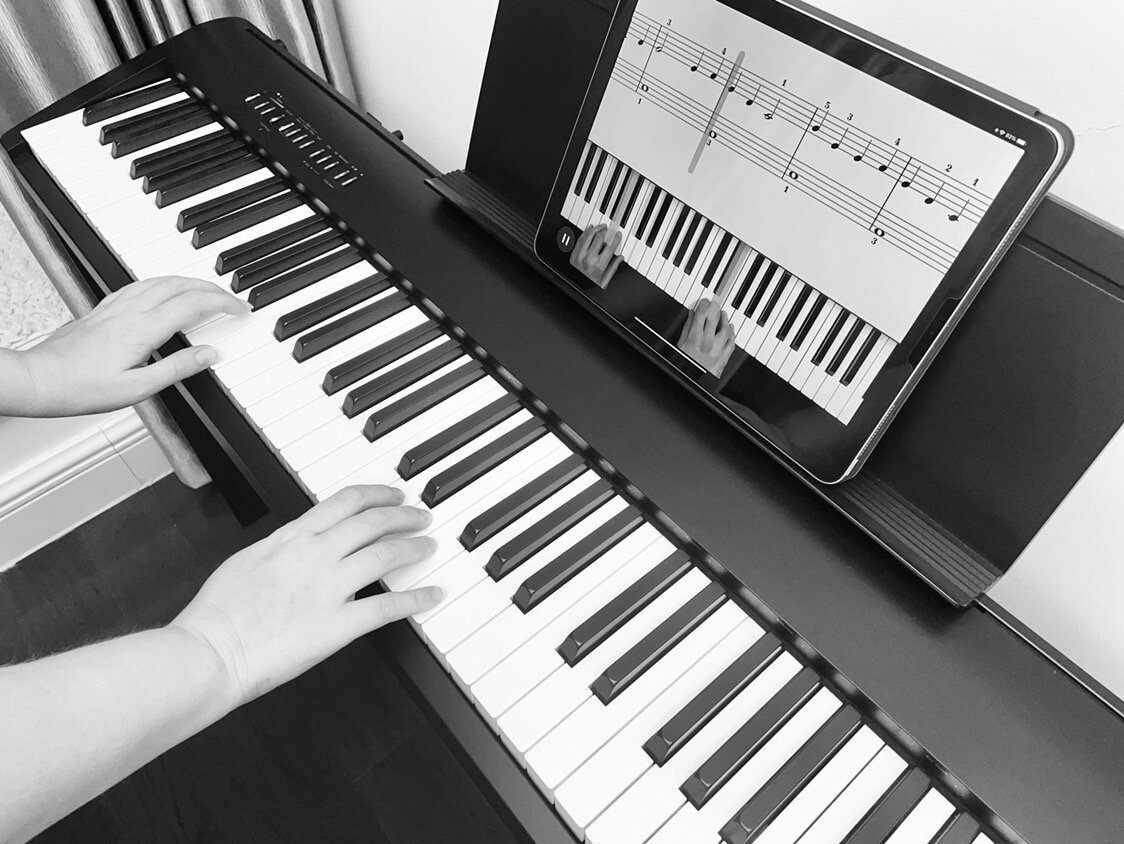7 Reasons to Pick Up Piano for Mental Health
Working in IT can be quite stressful, especially if you are leading a team, working across different teams and timezones, and building a new discipline of content strategy in your organization. I used to cope with all above and more just fine, until my worse break down found me at the gates of my company, unable to get home without a friend walking me. After that, I decided to take some steps to improve my mental state.
Meditations and yoga seemed like popular solutions, but despite the attempts, I got nothing but a sore butt and a persistent feeling that I’m doing something very silly. Not cut for meditation, I tied crafts, as it’s something I enjoyed since middle school. But even having a beautiful beaded embroidery in my hands, I would still find myself thinking about my team’s budget or that promising candidate’s CV I got though my network. Often, I would be distracted by colleagues messaging me on the weekend.
I needed something that would allow me to completely unplug from work.
I needed piano.
After 2 months of almost daily practice, my mental state somewhat improved, and I cannot see any better solution for my daily mental health care than piano practice. So, here’s why you may need piano for stress relief:
1. You will literally forget about your work.
Playing piano requires deep concentration. There are a lot of things to keep track of as you play: hitting the right keys with the right fingers at the right moment, keeping time and maintaining posture. Challenging as it might sound, it leaves your brain in no capacity to think about budget and CVs. Even a very short 15-minute practice helps to clear your head and enter the state of flow.
2. You will put your phone aside.
Having your phone anywhere near your keyboard, you risk breaking the “flow”. It’s much easier to put your phone in airplane more and focus on your keyboard and music sheet for your entire practice. What a great excuse to stop checking those messages!
3. You will feel in control.
Being a content strategist, I often need to balance the needs of different partners and stakeholders. The success of my work in many ways relies on others: whether designers will agree to follow the new workflow we propose, whether marketing and sales will be willing to buy in my team’s concept for a promotion. Being a bridge can make our work very rewarding, yet it’s quite frustrating at times. When you are only “partnering” with 88 keys, final result depends on you and you alone.
4. You will have something to impress your friends and colleagues with.
Years after attending LocWorld 2018, my friend and alumni Vlad remembers fondly that one lunch break when one of conference attendees spotted a piano in the corner of conference hall and started playing. Just imagine, you can be that person that everyone wants to shake hands with and thank for your music.
5. You can become even more effective in your work.
Balancing the presice control between the right and left parts of one’s brain makes pianists great problem-solvers, something that would certanly come in handy when you are back in the office.
6. You will get an extra source of motivation.
At work, projects can take a while to wrap up. Some UX writers and designers might wait as much as a few months for the new features to be launched. Playing piano is totally different in the sense that you can see your progress rather quickly. Constantly seeing yourself improve keeps your motivation up, it contributes to your self-confidence outside of the piano lessons as well. If you managed to play something like Liszt's Un Sospiro (great performance by Lang Lang for your reference), taking over that complicated project at work should be a piece of cake, right?
7. You will be happier.
Studies suggest that piano players show a significant decrease in depression symptoms compared to control group, as well as psychological distress and fatigue. No matter how tired I am after an intense day at work, more often then not I find enough energy to practice. Being able to piece together a melody than seemed totally out of my league a few weeks ago makes me feel happy and accomplished.
The points listed above is just something I’ve been observing since I started by piano journey, and only reflect my personal opinions. There are some aspects I left behind, for example, how playing an instrument can give you an additional channel to socialize and make friends with your fellow students, and how playing piano can help you better understand and manage your emotions, as you evoke them when playing. If you tried different means to manage your stress, and none of it seems to work, give piano a try. You won’t be disappointed!
What’s your favorite way to manage stress? Let me know in the comments below.
